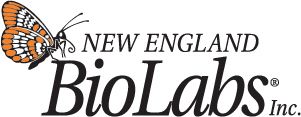 |
Experience is one thing you can't get for nothing. |
Home
Lab Resources
- Agarose Gel Electrophoresis
- Bacterial Streak Plate
- Bacterial Transformation
- DNA Ligation
- PCR
- Pipettors
- Plasmid DNA Isolation and Restriction Enzyme Digests
- Preparation of Agar Plates
Pre-lab Preparation
- Laboratory Citizenship & Performance
- BioSciences Lab Program Honor Code
- Molecular Biology Tips
- Writing Up Methodology
Additional Resources
BIOC 112 Introductory Biological Research Challenges
BIOC 112 explores science with a more open approach and involves guided participation in scientific research in collaboration with a research laboratory in BioSciences. Teams of students work on investigative, client-based projects with opportunities to design experiments, analyze data, and communicate their findings. This course is recommended for students interested in a BioSciences major who have very limited practical laboratory experience. Only first year students may enroll. A major objective is to prepare students who have limited laboratory experience to move on to BIOC 211, which requires more independent learning, and to perform independent research. The "fundamentals" covered in BIOC 112 include keeping a laboratory record, following standard protocols, collecting and analyzing data, and communicating scientific information. Students will learn fundamental skills such as preparing/diluting solutions, using automatic pipettors, using standard equipment, and using aseptic technique.The project may vary from semester to semester. Overall learning goals and intended learning outcomes for the course are outlined below.
COURSE OBJECTIVES AND LEARNING OUTCOMES
Goal 1: Possess basic laboratory skills desired of an independent researcher
Understanding the rationale behind procedures and asking questions that reflect a willingness to learn promote effective time management and successful completion of experiments. Our best students are always the ones who are engaged in the learning process. An engaged student- follows standard protocols to complete specific procedures
- performs logical troubleshooting of laboratory procedures
- adheres to instructions on laboratory safety, and recognizes hazardous situations and acts appropriately
- uses and stores equipment properly
- handles lab reagents and solutions sensibly
- performs basic lab calculations to prepare solutions and samples for experiments
- measures and reports uncertain quantities with appropriate precision
- applies appropriate methods of analysis to raw data
- converts raw data to a physically meaningful form with appropriate units
Goal 2: Understand the importance of effective communication and of detailed and accurate record keeping
Communication and record keeping are fundamental to the dissemination of science. A student who is an effective communicator- maintains a timely, comprehensive laboratory notebook with sufficient detail to repeat experiments, troubleshoot procedures, and analyze data
- shares information orally
- writes effectively in appropriate style and depth
- makes effective use of information resources
Goal 3: Recognize the importance of discipline and responsibility when working in a professional environment
In addition to working independently, each student is expected to work well with each member of a team. A disciplined and responsible student- employs all available resources to prepare for laboratory work
- takes the initiative to note when assignments are due and completes them on time
- follows instructions for completion of assignments and execution of lab procedures
- works independently but seeks help when appropriate
- works effectively as part of a team and divides lab responsibilities to complete work in a timely manner
- admits when mistakes or errors are made and accepts responsibility for actions
- learns from mistakes as well as successes and is open to suggestions from teammates, TAs, or the instructor
- recalls routine procedures without having to consult a teammate, TA, or instructor
- takes the initiative to refresh past understanding of methods, procedures, explanations, and theory
- shares specific observations and experiences with teammates
- when necessary, picks up responsibilities if partner is unable to carry them out
Goal 4: Experience that not all scientific experiments work as planned
Many scientific experiments do not work as planned and often yield either no results or findings that conflict with or differ from previous experiments. Our teaching labs in BioSciences provide a "safe" and nurturing environment where a student can- respond to questions that require troubleshooting of experimental methods or data collection
- use laboratory notes and observations to evaluate the success of experiments and identify potential errors when outcomes are unanticipated
- make corrections or alterations after missteps in experimental procedures, adjusting their schedule or research plan appropriately
- observe how other students report errors in posters or presentations
Required Text and Resources
- McMillan, Victoria E., Writing Papers in the Biological Sciences, Fifth Edition (2012) or Sixth Edition (2017), Bedford/St. Martin's
- Experimental background/theory (see links on this site)
- Manufacturer's protocols/manuals
We would like to thank New England Biolabs for their generous support of our laboratory program
Visitors: to ensure that your message is not mistaken for SPAM, please include the acronym "Bios211" in the subject line of e-mail communications
Created by David R. Caprette (caprette@rice.edu), Rice University March 26, 2008
Updated by B. Beason 20 August 2017
